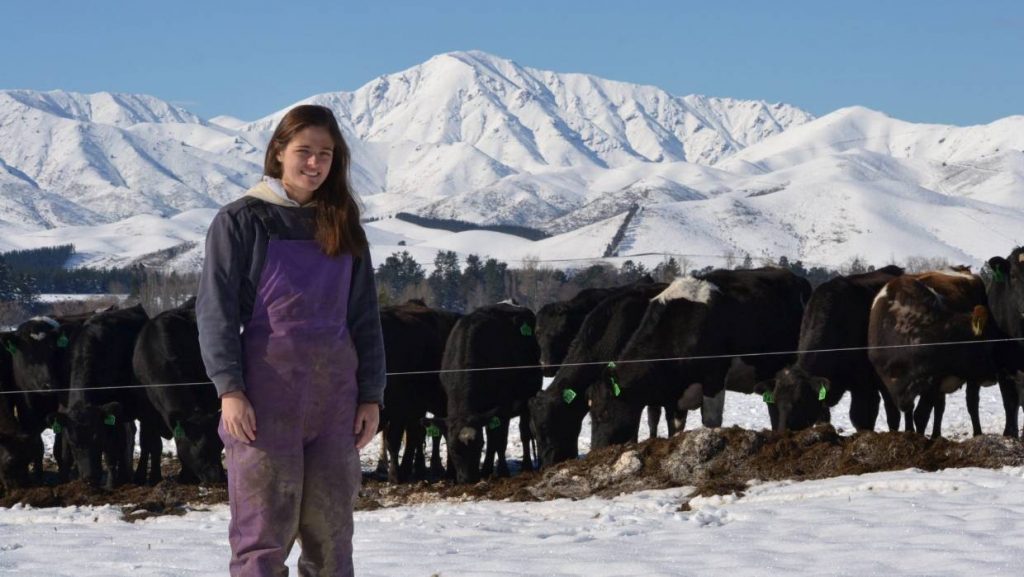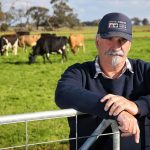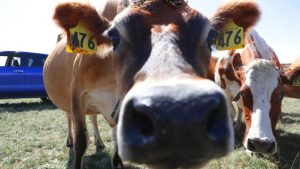
Recently awarded the prize of 2019 New Zealand dairy trainee of the year, the 25-year-old wants to own her own herd and eventually her own farm.
“I’m working towards my own herd and in future I’d like to have an interest in several dairy farming businesses so I can create progression to help other young people.”
They are the sort of high-reaching goals that resonate with Leonie and Kieran Guiney, owners of the 600-cow, 175 hectare property where Blowey works.
“I just think that’s wonderful, that’s the strength of our industry. Nicola is a second in charge at the moment but she could easily be a manager and next year she will. Already she’s talking about multi-farm ownership so she can train people,” Leonie Guiney said.
From Devon in the United Kingdom, Blowey is from a dairy farming family, although her father opted not to take up the family property about the time when she was born.
“I went to secondary school in the centre of Plymouth, it was an hour each way commuting and I got bored of that and felt I wanted to do something in the countryside. I got work experience for school when I was 14 on a farm and it went from there.”
Nevertheless she continued her studies, eventually graduating with a bachelor of science in agriculture, before working for a year on an intensive dairy farm, where the average milk output from a cow was 11,000 litres a year, compared with 4196L for the average New Zealand cow.
Blowey was keen to learn about pasture-based dairy systems, and was hired by Matt and Vanessa Greenwood, who manage one of Guiney’s farms.
Guiney credits the Greenwoods for selecting and recruiting Blowey, and training her.
“Matt is very clear that he’s in the business of farming pasture and to do it sustainably.”
Guiney said there was a pipeline of young people from the United States and the UK who were eager to learn about low-cost, pasture farming. Some of them stayed for a year or two and returned home, but about 30 per cent became residents. Blowey is applying for residency.
Comparing systems between New Zealand and the UK, Blowey said the UK industry was more diverse because there were a number of different systems.
These ranged from those which housed cattle indoors all year round and milked three times a day, to farms towards the other end of the spectrum which grazed outside from February through to November in a New Zealand-style system. Then there were farmers in the middle, who housed cattle indoors but put them out to pasture during the day.
“Here most people are grass-focused, which is nice because it gives the industry a lot more direction and focus between farmers. You can have good conversations with people because we’re starting from the same point. Also about 50 per cent of the milk in the UK goes to liquid milk for consumption, which is why we have a lot more year-round calving.”
Wages could be higher in the UK if workers were paid hourly, which she was. It was difficult to compare because living costs varied.
Blowey said she was content with living in Fairlie, despite the fact it is a small community.
“I’ve made quite a bit of momentum in the industry and enjoyed living where I do so it makes sense to stay put. Fairlie’s a special place, there’s a strong community spirit and a strong young farmers group so there are lots of local people to make friends with.”
Guiney said the advantage of working with an owner of multiple farms was that workers had more opportunities to meet each other.
“We’re careful with rosters so they can go to Queenstown together or wherever. There’s loads going on in Fairlie and they’re part of creating that, Nicola is organising the young farmers’ ball, they come from these countries and muck in boots and all. It’s fantastic.”
Blowey won $9700 in prizes at the awards. Besides trainee of the year, she scooped the Federated Farmers farming knowledge award, the DeLaval communication & engagement award and the best video award.
Dairy Trainee head judge Jenny Sinclair said Blowey was a “confident, mature and compelling young woman. She has a mature outlook and her communication skills were exceptional”.
























